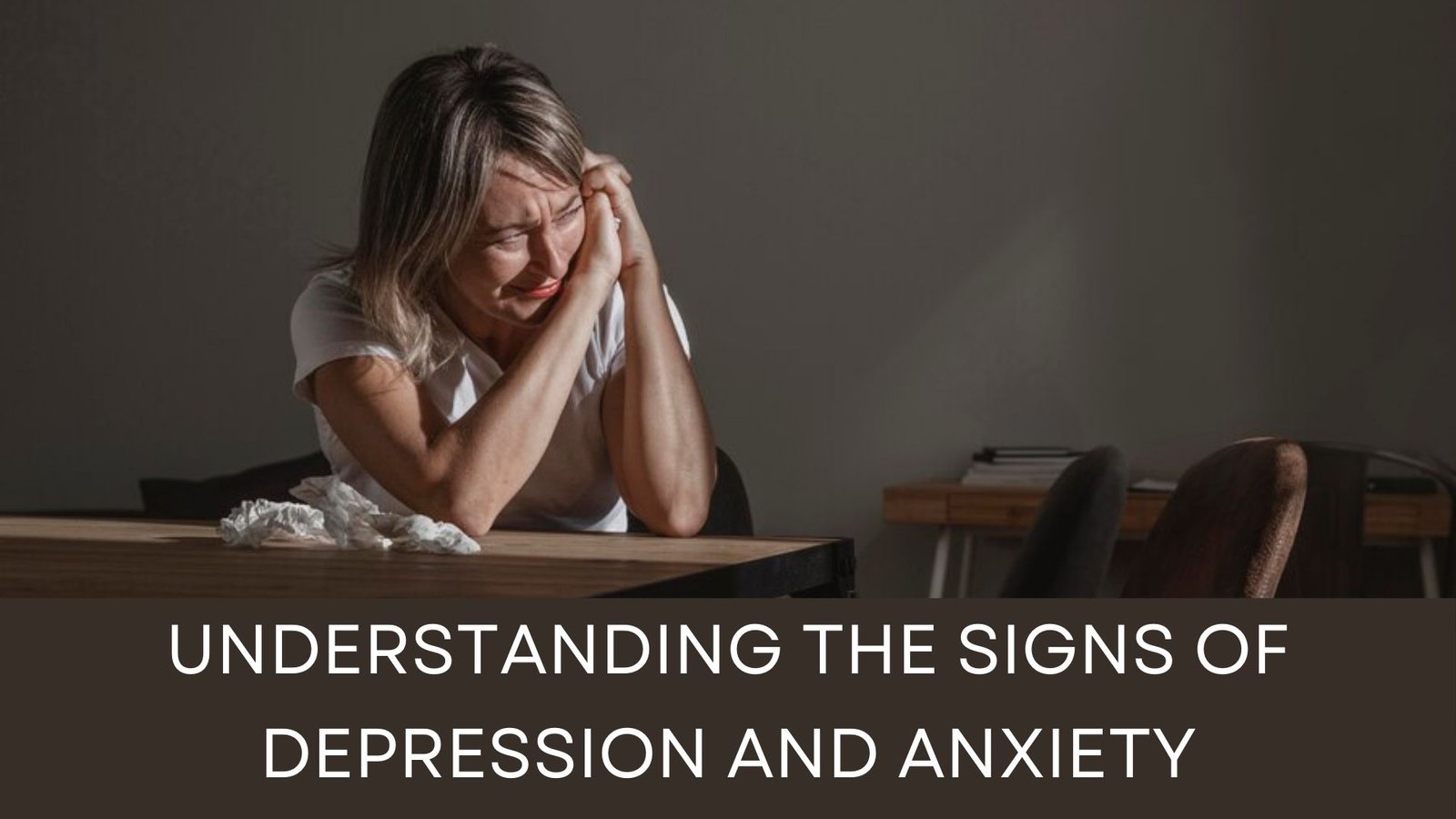
Understanding the Signs of Depression and Anxiety: Symptoms, Overlaps, and When to Seek Help
Depression and anxiety are among the most common mental health challenges people face today. Despite being widespread, many individuals don’t realize they may be experiencing the signs of depression and anxiety until the symptoms start affecting their daily lives. These conditions can cause emotional and physical distress, making it important to recognize the signs of anxiety disorder and signs of depression early on.
In this blog, we’ll explore what these signs are, how they often overlap, and when it’s time to seek professional help. Understanding the symptoms is the first step toward getting the support you need for better mental health. From there, Healwell Primary Care and our dedicated team of professionals will provide the care and guidance necessary to help you manage and overcome these challenges.
What Are Depression and Anxiety?
Depression and anxiety are the two most commonly diagnosed mental disorders that affect millions of people today. While each can exist independently, they often overlap, presenting symptoms that impact emotional and physical well-being.
Depression is typically marked by pervasive sadness, hopelessness, and a relative lack of interest in much pleasure in activities once enjoyed. It causes fatigue, disruption of sleep and appetite, and cognitive difficulty in concentrating on most tasks, making even simple tasks feel overwhelming.
On the other hand, anxiety is excessive worry or fear about everyday situations. Anxious people may sometimes be restless, have rapid heartbeats, or even fail to sleep. For instance, constant worrying may make it difficult to focus or relax.
The two conditions can easily disturb your daily routine, relationships, and well-being. Recognizing the symptoms early can help manage them efficiently, and professional help is key to overcoming these challenges.
Signs of Depression and Anxiety
Depression and anxiety are so common that most people do not even know if they have it. Detection of depression and anxiety can be the first step towards receiving help. Some of the common signs of anxiety disorder and depression include:
- Emotional Signs: A persistent sadness, hopelessness, or a sense of emptiness. Easily irritated or emotionally overwhelmed, resulting in mood swings or heightened emotional sensitivity.
- Physical Symptoms: Loss of appetite or overeating are common. Sometimes, the individual suffers from sleep disturbances like insomnia or oversleeping. Other physical manifestations are unexplainable aches and pains in the body with no visible medical reason.
- Behavioral Signs: Loss of interest in engaging in activities that one used to take pleasure in, inability to concentrate, make decisions, or complete tasks, and thoughts of self-harm or withdrawal from social interactions.
The Overlap Between Depression and Anxiety
It’s common for depression and anxiety to occur together, making it difficult to distinguish between the two. A person suffering from depression and anxiety will have a sense of worry, with persistent sadness or emptiness. Over time, individuals can fail to carry out simple everyday activities, which increases stress and frustration.
Common Symptoms That Overlap
People who are suffering from comorbid depression and anxiety share many overlapping symptoms, which include:
- Fatigue: Constant exhaustion, even after a full night’s sleep. It feels like no amount of rest can somehow restore energy levels, leaving one drained throughout the day.
- Irritability: Easily irritated or annoyed by small discomforts or minor daily inconveniences.
- Distractibility: Difficulty focusing on tasks, following conversations, or making simple decisions.
If you identify with these symptoms, you might be dealing with both depression and anxiety. Treatment for both can significantly improve your well-being. Healwell Primary Care can diagnose and offer treatment to help relieve these signs of depression and anxiety.
When to Seek Professional Help?
Knowing when to seek professional help for depression and anxiety is crucial. Many people delay getting help, thinking their feelings are temporary or manageable. However, you need to see a healthcare provider if you experience the below:
- Symptoms last more than two weeks: If feelings of sadness, worry, or overwhelm persist for two weeks or more, it’s time to seek professional help.
- Impact on daily life, relationships, or work: If the symptoms of anxiety disorder or depressive symptoms begin to interfere with your capacity to work, manage relationships, or take care of yourself, then it’s important to seek help.
- Suicidal thoughts: If you have thoughts of self-harm, seek immediate help. This is a serious sign that you need urgent care.
How Healwell Primary Care Can Help?
Healwell Primary Care provides a variety of services for support and treatment of anxiety and depression. Our services include:
- Counseling: Our compassionate counselors/therapists can help you understand your emotions and provide strategies for dealing with them.
- Medication Management: If needed, we can prescribe medication that may help to improve your mood swings or regulate conditions and manage signs of depression and anxiety.
- Specialist Referrals: For those needing more intense care, we can provide referrals to mental health specialists.
Self-Care Strategies for Managing Depression and Anxiety
In addition to professional treatment, self-care strategies can also help manage depression and anxiety::
- Lifestyle Changes: Regular exercise, a healthy diet, and proper sleep are key to maintaining mental and physical health. Deep breathing and mindfulness techniques can also help reduce stress.
- Social Support: Stay connected with loved ones or join support groups where you can share experiences and get encouragement from people who are going through similar challenges.
- Professional Help: If these symptoms persist, an individual should consider seeking the help of a professional. Therapy techniques like CBT can teach one how to handle negative thinking patterns effectively. Prescription medication given by a healthcare provider may be used to control mood swings and reduce symptoms.
Conclusion
Early recognition of depression and signs of anxiety disorder can help individuals seek help early and improve mental health. If you are noticing the signs of anxiety disorder or symptoms of depression, seek help now. We at Healwell Primary Care are completely committed to expert care through counseling, medication management, and specialist referrals to help you regain control of your life.
If you or a loved one is experiencing anxiety and depression symptoms, reach out to Healwell Primary Care today to learn how we can assist you on your way to better mental health.
FAQs:
1. What are the early signs of depression?
Early signs of depression include constant sadness, loss of interest in activities, or changes in sleep or appetite. Seek help if these symptoms persist for more than two weeks.
2. Can a person have depression and anxiety simultaneously?
Yes, for many people, both conditions occur at the same time. Common symptoms may include fatigue, irritability, and sleep disturbances.
3. How is anxiety diagnosed?
Doctors use psychological assessments, medical history, and standardized tools like the GAD-7 questionnaire to diagnose anxiety disorders.
4. What treatments are available for depression and anxiety?
Treatments include therapy (Cognitive Behavioral Therapy – CBT), medication (antidepressants, anti-anxiety drugs), lifestyle changes, and mindfulness techniques.
5. Does depression cause anxiety?
Yes, depression can cause anxiety. The emotional distress, negative thought patterns, and physical symptoms associated with depression often trigger feelings of worry and fear, leading to anxiety.
Contact Us Today
Book an in-person or online visit in seconds. Call (312) 971-7147 or click on Book Appointment.





